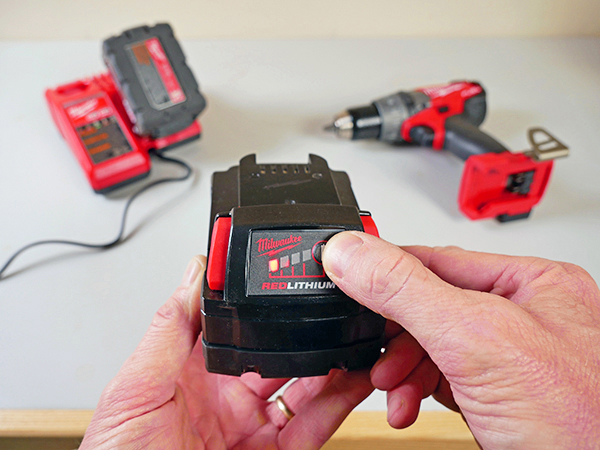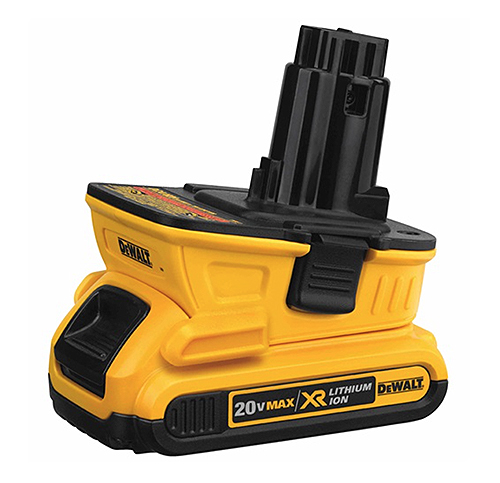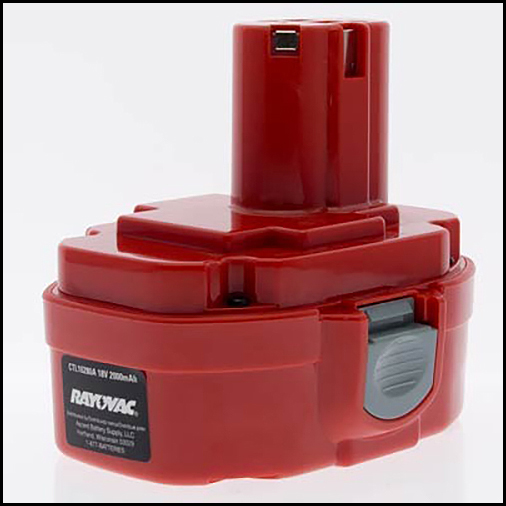
I read with much interest your August 2018 print article on cordless drill/drivers. With few exceptions, there is nothing like the convenience of the current (no pun intended) line of battery-powered tools. However, I am not ready to put a tool with remaining life in the trash because the original manufacturer no longer supports the original battery configuration. Understanding that changes in technology can bring about improvements in tool performance, it does not appear that there has been a smooth transition in the power design. My question is, have third-party suppliers filled this gap with lithium-ion batteries that are compatible with a tool designed for Ni-Cad power? – Tim Babcock
Chris Marshall: I can understand your plight, Tim. You’ve got an older Ni-Cad tool that still works fine, but those infernal batteries are fading fast and need to be replaced. Trouble is, buying the Ni-Cad replacements, if they are even still made by the tool’s manufacturer, is expensive. (I once was in the same situation with a drill/driver, and a pair of replacement Ni-Cad batteries cost more than what I paid for the tool originally, with two batteries and charger!)
You rightly point out that lithium-ion batteries offer many advantages over Ni-Cad: they’re lighter weight, more compact and hold their charge much longer than Ni-Cad will. Replacing cordless tool batteries is inevitable eventually, so why not “trade up” to the next generation of cell chemistry? It seems like a smarter move, all around, than sticking with Ni-Cad.
I wish it were that simple. Here’s one explanation for why it sometimes isn’t: lithium-ion tool batteries and their internal electronics are designed to work together with more sophisticated electronics than your Ni-Cad model probably has. That’s especially true for cordless tools with brushless motors, because these “smarter” motors are interacting with the battery constantly during use. The battery electronics also interact with the charger, which is designed specifically for lithium-ion, so it can replenish them more efficiently cell by cell. Chargers for Ni-Cads and lithium-ion aren’t the same.

Three years ago, DeWALT came out with a battery adapter we reported about that attaches to its 20V Max* lithium-ion batteries to retrofit them to older DeWALT Ni-Cad tools with post-style battery packs. Other “big brand” tool companies haven’t followed suit with similar adapters. With all of the advantages lithium-ion offers, plus the ability to expand the range of cordless tool options that use them, most power tool brands have phased entirely out of Ni-Cad.
If replacement Ni-Cads might still work for you as an option, but you’re having trouble finding the specific batteries, Batteries Plus Bulbs offers quite a selection of replacement tool batteries for 25 different tool brands on their website. Click here to see if they have batteries for your brand and model. The site also claims that technicians in these stores can rebuild older tool batteries when a replacement doesn’t exist anymore. I’m presuming this means they can swap out the internal cells with new ones of the same chemistry and use the original battery case. I’m not sure if that means lithium-ion cells could be substituted for Ni-Cad cells in a rebuild of this sort, but that’s certainly worth exploring. Good luck!






